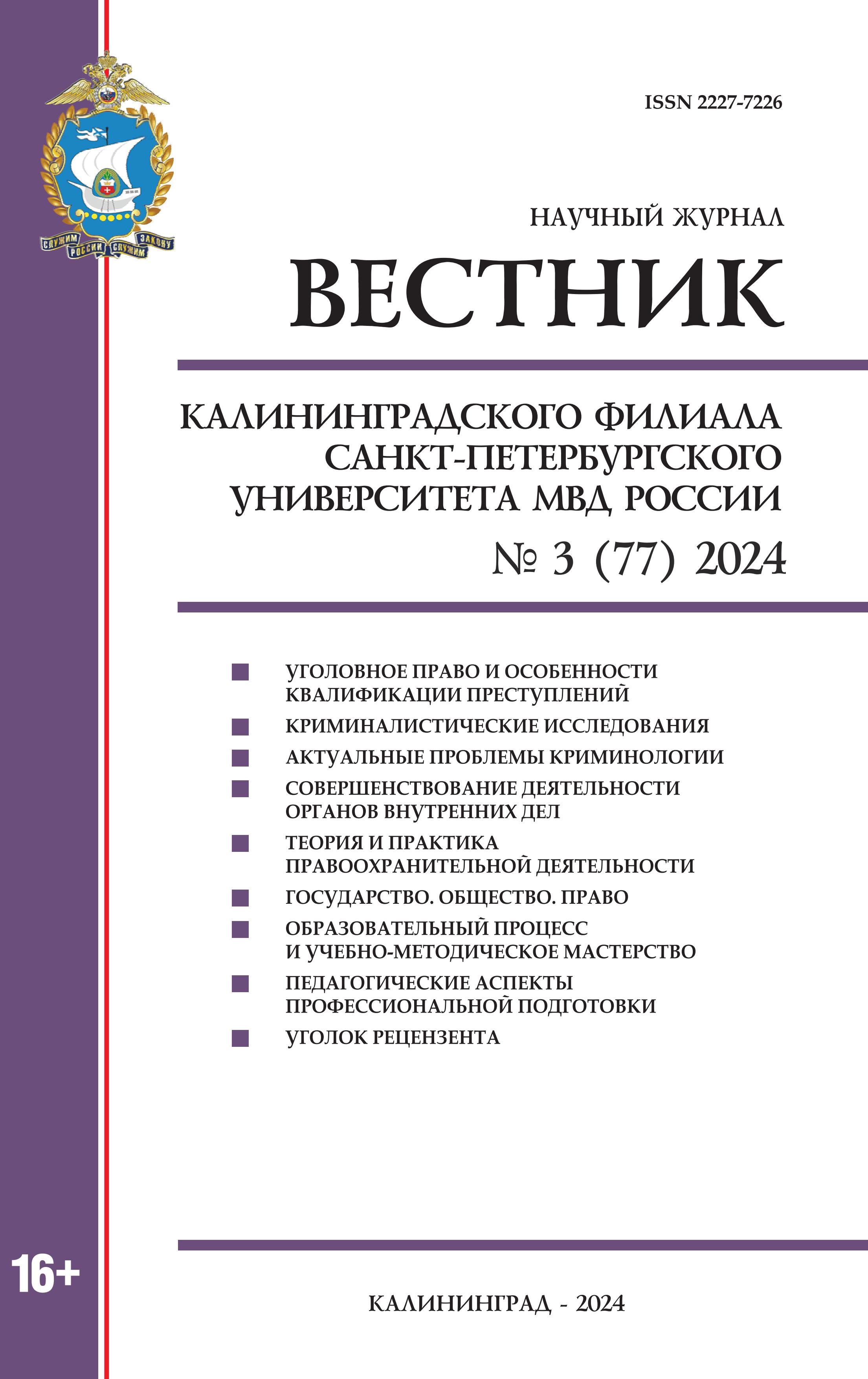from 01.01.1994 until now
Volgograd, Volgograd, Russian Federation
CSCSTI 10.00
Russian Classification of Professions by Education 40.00.00
Russian Library and Bibliographic Classification 6
Russian Trade and Bibliographic Classification 7
Introduction. The article considers modern problems of implementation of general conditions of judicial proceedings in expert activity. Within the framework of the study conducted by the author, a scientific and practical rethinking of expert activity was carried out through the prism of general conditions of judicial proceedings, as well as the relationship between expert initiative and the need to comply with the fundamental rules of judicial proceedings. Correlation of general conditions of judicial proceedings with the peculiarities of expert activity at this stage of criminal proceedings allowed us to draw conclusions about the tactics of expert participation in court, as well as the scope of study of a particular piece of evidence. The issues of narrowing or exceeding the scope and limits of expert research have always been the subject of heated discussions and are reflected in this article, since they do not cease to be relevant, and the answers to them are still in demand. Methods. In the course of the study conducted by the author of the article, dialectical and general scientific methods of cognition were used: observation, description, theoretical understanding of the material, systemic interpretation. Of the specific scientific methods of studying the subject of scientific research, the formal-legal method and the methods of induction and deduction were used. Results. An expert examination in court is characterized by a number of unique features that distinguish it from an expert examination during a preliminary investigation. It contains elements of repeated, additional, and independent studies, while it is carried out within the framework of procedural rules based on the principles of immediacy, publicity, and competitiveness of criminal proceedings. In order for an expert to successfully perform his duties in court and facilitate the activities of the latter, he must be able to correctly understand whether the task given to him by the court falls within his competence. At the same time, the court must be especially careful in determining the expert task. The initiatives shown and implemented by the expert should not go beyond the scope of his special knowledge. According to the author, the institution of expert initiative and the procedural independence of the expert should be considered as objects of promising scientific research.
Expert, general conditions of the trial, immediacy, verbalism, publicity, free evaluation of evidence, expert initiative







